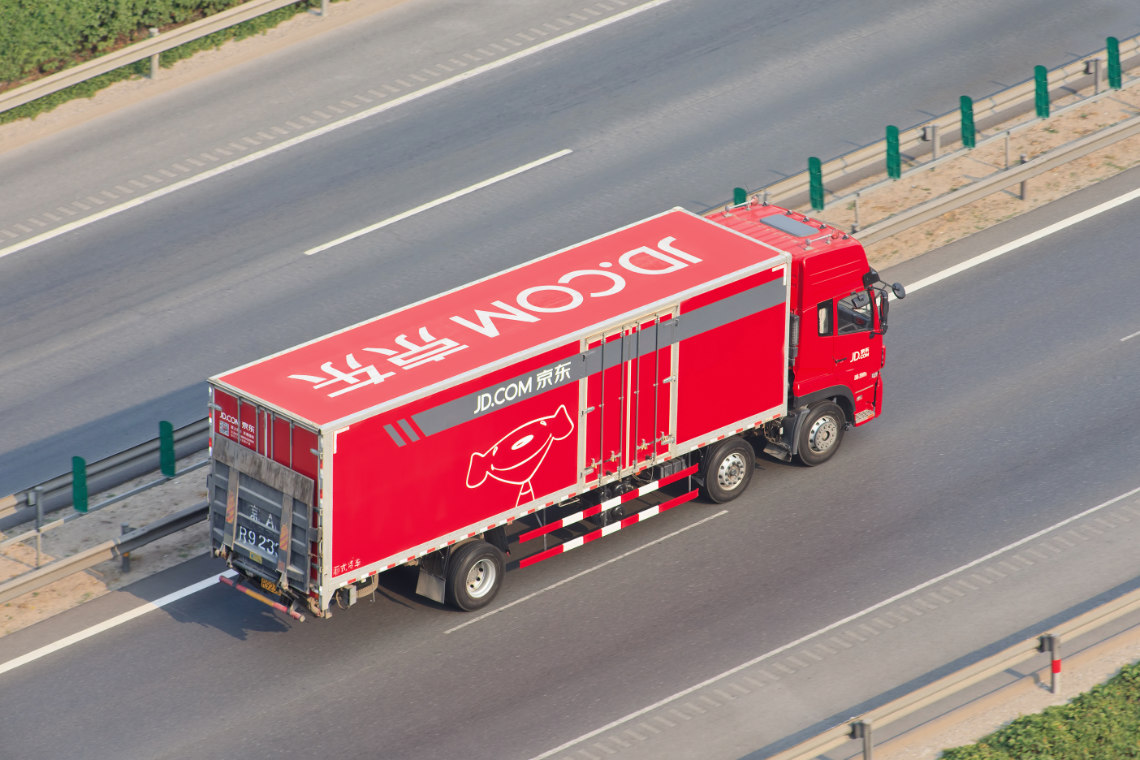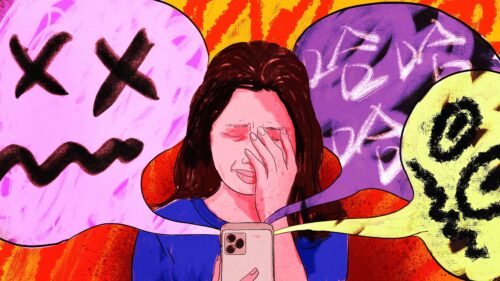A draft law for the world’s largest online market
Top China news for December 19, 2016. Get this daily digest delivered to your inbox by signing up at supchina.com/subscribe.

TODAY’S TOP STORIES
New law to govern the world’s largest ecommerce market
Xinhua News Agency’s top Chinese story today focused on the draft of a new law to govern ecommerce in China. There is a shorter version of the report in English here. Legislators submitted the draft law for review at the bimonthly session of the National People’s Congress (NPC) Standing Committee; the law is intended to “facilitate ecommerce growth, help maintain market order and protect consumer rights.”
The draft law obliges ecommerce operators to pay taxes, ensure confidentiality of user data and “offer technical support” for “law enforcement activities.” The document also says that “China will work to facilitate cross-border online shopping,” including improving “efficiency in customs clearance.”
U.S. underwater drone, but with what conditions?
Last Friday, we noted that a Chinese Navy warship had seized an underwater American drone in the South China Sea. The South China Morning Post reports that while China’s Ministry of Defense had said it would return the drone, “Beijing is expected to demand the United States scale down its surveillance” in those waters. Today, SCMP says that China announced that it will hold its “‘first-ever’ underwater drone symposium.”
Also worth reading if you’re following this news: a pair of erratic tweets from President-elect Donald Trump on the drone incident summarized in this article by the Los Angeles Times, and this story from The New York Times: Muted U.S. response to China’s seizure of drone worries Asian allies.
On The China Project: Q&A with concert pianist virtuoso Li Yundi
Today on The China Project, we publish a Q&A with Li Yundi, a master concert pianist. In 2000, at the age of 18, he was the youngest-ever winner of the International Chopin Piano Competition.
On The China Project: Henry Kissinger and Cheng Li on U.S.-China relations in the age of Xi and Trump
In case you missed it, on Friday we published a review of an event in New York that featured Henry Kissinger, Cheng Li and other distinguished panelists. They expressed optimism about the future of ties between the world’s two biggest economies despite the uncertainty about the new American administration and China’s response to it.
More China stories worth your time are summarized below, with the most important at the top of each section.
BUSINESS AND TECHNOLOGY:
-
- China capital outflows: Bank loans dwarf foreign deals / Financial Times
“Bank lending and securities investment accounted for $301bn in net outflows from China in the first nine months of the year, compared with $78bn from outbound foreign direct investment, according to Financial Times analysis of balance-of-payments data.” - As yuan weakens, Chinese rush to open foreign currency accounts / Reuters
“In the first 11 months of 2016, official figures show that foreign currency bank deposits owned by Chinese households rose by almost 32 percent, propelled by the yuan’s recent fall to eight-year lows against the dollar.” Bloomberg additionally reports that the total foreign currency outflows are “estimated to have totaled more than $1.5 trillion since the beginning of 2015,” as many Chinese seek safety for their savings through U.S., Australian and Hong Kong dollars. - Bond selloff shows risks of China’s efforts to restrain credit / WSJ
“A gradual tightening of short-term credit by China’s central bank — combined with rumors of liquidity squeezes at brokers — prompted a mini-rout in the country’s $8 trillion-plus bond market last week, forcing authorities to reverse course and inject some $86 billion in short- and medium-term funds.” - China home-price growth slows as property curbs dent demand / Bloomberg
“New-home prices, excluding government-subsidized housing, gained from the previous month in 55 of the 70 cities tracked by the government, compared with 62 in October, the National Bureau of Statistics said Monday.” - Heralding social, financial change, China aims blow at iron rice bowl / Reuters
“China has ordered state firms to smash the decades-old system of providing cradle-to-grave welfare support, known as the country’s ‘iron rice bowl,’” reports David Stanway. “But the order, part of a plan to reduce financial pressure on bloated and heavily indebted state-owned enterprises (SOEs), is likely to be easier said than done as cities navigate the social and financial wrenches the changes will cause.” - Americans have been scapegoating Chinese workers almost as long as the U.S. has been a country / Quartz
“For almost 200 years, oftentimes racist resentment of Chinese workers in the U.S. has been a fact of American life,” writes Dan Kopf, who notes that the first major wave of immigrants from China, who arrived starting in the 1850s, “were blamed for stealing jobs and driving down wages, and were not welcomed by trade unions.” - Pakistan turns to China in energy binge / WSJ
Prime Minister Nawaz Sharif “is betting on a $21 billion Chinese-backed splurge on energy projects to boost the economy — and his reelection bid.”
- China capital outflows: Bank loans dwarf foreign deals / Financial Times
POLITICS AND CURRENT AFFAIRS:
-
- Trump’s and Xi’s differences magnify uncertainties between U.S. and China / NYT
“Both came to power vowing to restore their nations to greatness,” writes Chris Buckley. “But America’s loud, ad-libbing president-elect, Donald J. Trump, and China’s guarded, calculating president, Xi Jinping, are glaring contrasts as politicians, and their pairing has injected new unpredictability into relations between their governments.” See also a piece titled “Not Since Nixon Has a U.S. President Faced Such a Tough China Challenge” by former diplomat and vice chair of the Paulson Institute Evan Feigenbaum. - Trump has no idea how to run a superpower, say Chinese media / The Guardian
“[The] Communist Party-controlled Global Times says Trump ‘is not behaving as a president who will become master of the White House.’” - Norway and China restore ties, 6 years after Nobel Prize dispute / NYT
“China and Norway said on Monday that they would normalize diplomatic relations, six years after the decision to award the Nobel Peace Prize to the imprisoned democracy advocate Liu Xiaobo opened a rift between the countries,” reports Sewell Chan. “Neither nation explained the timing of the normalization of ties, but analysts said that Norway was hoping to revive talks on a trade deal.” Xinhua News Agency published a “full text of a statement between China and Norway on normalization of bilateral relations,” which said that “due to the Nobel Peace Prize award and events connected to the Prize, China-Norway relations have deteriorated,” but that “the Norwegian side is fully conscious of the position and concerns of the Chinese side.” - Will Xi Jinping cut seats at Politburo top table from seven to five? / SCMP
“Analysts said the five-yearly reshuffle at the top of the party looming late next year, centered around its 19th national congress, would present a good opportunity for party general secretary Xi Jinping to consolidate his power by reducing the Politburo Standing Committee membership from seven to five.”
- Trump’s and Xi’s differences magnify uncertainties between U.S. and China / NYT
SOCIETY AND CULTURE:
-
- Air pollution in northern Chinese city surpasses WHO guideline by 100 times / Reuters
Red alerts, the most severe air pollution warning in China, were issued in 22 northern Chinese cities on Saturday. In Shijiazhuang, the capital of Hebei Province, levels of fine particulate matter rose to 1,000 micrograms per cubic meter, compared with the WHO’s 10 microgram guideline. - Beijing’s ‘smog refugees’ flee the capital for cleaner air down south / SCMP
“The Beijing Evening News reported that tickets on flights to inland areas in the west and coastal areas in the east of the country were three times higher than before the red alert, based on searches on travel website Qunar.com.” - Chinese, spending freely, become ever-larger tourism force in New York / NYT
According to Fred Dixon, the chief executive of NYC & Company, “the Chinese surpassed Brazilians and Canadians in the ranks of tourists to the city this year and will overtake the British by 2022.” He noted that New York had more than 950,000 visitors from China in 2016, “a sevenfold increase since 2007.” For more on efforts across the U.S. to capitalize on “a cascade of up to 23 million Chinese visitors by 2021,” see this piece from the South China Morning Post. - Opinion: Anatomy of an (alleged) online scam / Chublic Opinion
The recent case of Luo Er, a father whose blogging about his daughter’s leukemia brought him about USD 400,000 in donations in less than 72 hours, illustrates “social media’s disruption of established practices and norms in both blogging and charity,” writes Ma Tianjie. “The case highlights the need for vetting mechanisms and professional organizers of philanthropic resources. The worthiness of someone for charitable support should be based on actual needs, not one’s ability to tell heart-wrenching stories.” - China’s OxyContin boom is a gold mine for this drugmaker / Bloomberg
“With its harsh anti-narcotics laws and painful history with debilitating opium epidemics in the 19th century, China wouldn’t spring to mind as a promising market for OxyContin, a painkiller that has been at the center of an opioid addiction outbreak in the U.S.,” reports Bloomberg. “Yet in China, powered by soaring cancer rates and an aging population, OxyContin is turning into a hit.” - Beijing denies U.S. claim that China is synthetic drug king / AP
“Both the U.S. Drug Enforcement Administration and the White House Office of National Drug Control Policy point to China as North America’s main source of fentanyl, related drugs and the chemicals used to make them,” writes the Associated Press. Yet Chinese authorities say these claims “lack the support of sufficient numbers of actual, confirmed cases.” - Dissident Chinese artist Ai Weiwei finds home too dangerous, but he may go to Syria / LA Times
After being detained by Chinese security forces for 81 days in 2011 and blocked from travel for four years after that, Ai now spends most of his time away from his native Beijing. “As though making up for lost time, the 59-year-old artist has lived and worked in a remarkable number of places around the world since regaining his passport,” writes Barbara Demick. - ‘The Great Wall’ scales to the top of China’s box office / WSJ
“An ambitious China-U.S. co-production starring Matt Damon did well at the Chinese box office over the weekend, grossing over 478 million yuan ($69 million) — though it had less success with Chinese critics.” - Japan feeds China’s anime addiction / WSJ
“Japanese anime has been popular in China for decades — it just wasn’t much of a moneymaker for its creators until the Chinese government began taking a harder line on pirated content a few years ago.”
- Air pollution in northern Chinese city surpasses WHO guideline by 100 times / Reuters





